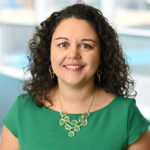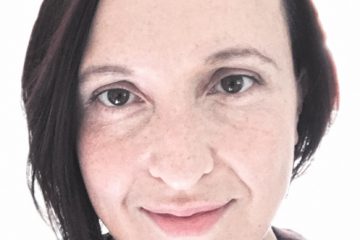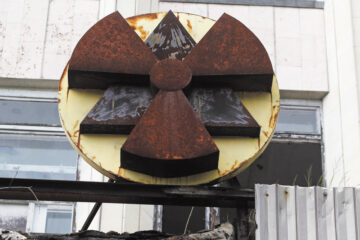We must be vigilant about the power of our words & actions

Opinion
By Michele Dritz
I really enjoy Masha Kisel’s writing, especially her columns where she describes the history and culture of her family, and of Eastern Europe. I often learn something new and get to glimpse things from her unique vantage point.
It is because of that enjoyment and respect for both Masha and our Dayton Jewish community that I felt compelled to write this. After reading her column about her family navigating Christmas in America (January Observer), I found myself both saddened and upset.
I can appreciate the frustration she and others feel during that time of the year, and I enjoyed hearing about her own family’s traditions like mitzvah making with JFS, but I was left saddened by the underscore of derision toward someone else’s traditions — in this case, Christmas.
I admittedly come to write this bearing my own bias as someone who grew up Catholic in a country that is clearly steeped in Christianity, regardless of its so-called secular institutions. But I also write this as someone who hopefully has shown by actions my strong commitment to the Dayton Jewish community.

Growing up all over and loving the immersive experience of travel, I have spent my life knowing that one can become richer from learning and engaging in new cultures without feeling like it needs to be your identity or cultural framework.
We stress the value of diversity and acceptance both within our Jewish community and in our larger world. And as a Jewish community, we rely on that acceptance and emphasize our non-negotiable need from others to both “see us” and give us the space to live our lives, however we may express that Jewish connection.
The Jewish community — both fortunately because of wonderful traditions like tikun olam (repairing the world) and unfortunately because of the devastation we have seen when hate perpetuates hate — preaches and practices support and inclusion for all, acting as a light for others to model.
But we do a disservice to ourselves and our traditions when we speak in ways that subtract value from others’ traditions. As a good friend recently said, “I do not think we would mock the practice of Muslims fasting for Ramadan or hide from Hindus dousing each other in chalk for Holi.”
Our traditions, though sometimes originating in religious practice, are also an extension of who we are, where we have been, and who we have become. They often evolve as we evolve and form connections to others. Sometimes we continue those traditions while emphasizing the religious underpinnings, and sometimes those traditions hold value for us despite their origins, but it is hard to deny their importance as part of our identity.
We tend to view the world through the lens and history in which we are embedded. It is in part why people who are Jewish are so tuned into words or actions that are antisemitic, African Americans for racist undertones, or Muslims for Islamophobia and stereotyping. The list goes on because even things that are not meant to be disparaging can be interpreted quite differently through someone else’s lens.
It may be an impossible line to walk, but we nonetheless must stay vigilant about the power our words and actions have in creating space for all.
I am not implying that one needs to line up to see Santa Claus, nor should we hide our own traditions like latke-making or Passover celebrations throughout the year. And I am keenly aware of the very real dangers both locally and abroad as I strive to raise my own Jewish family in a world that feels scarier every day.
But if our goal is to broaden the thinking and acceptance of those around us — especially those who look upon the Jewish community with a sense of otherness or at least “unsureness” — then our own words and actions need to be as welcoming and open as what we expect from others.
There is beauty and value in sharing and embracing the richness in all of our unique stories, traditions, and cultures, and in the end I think it allows us to simultaneously strengthen ourselves and the communities in which we find our home.
Michele Dritz is a member of the board of the Jewish Federation of Greater Dayton.




